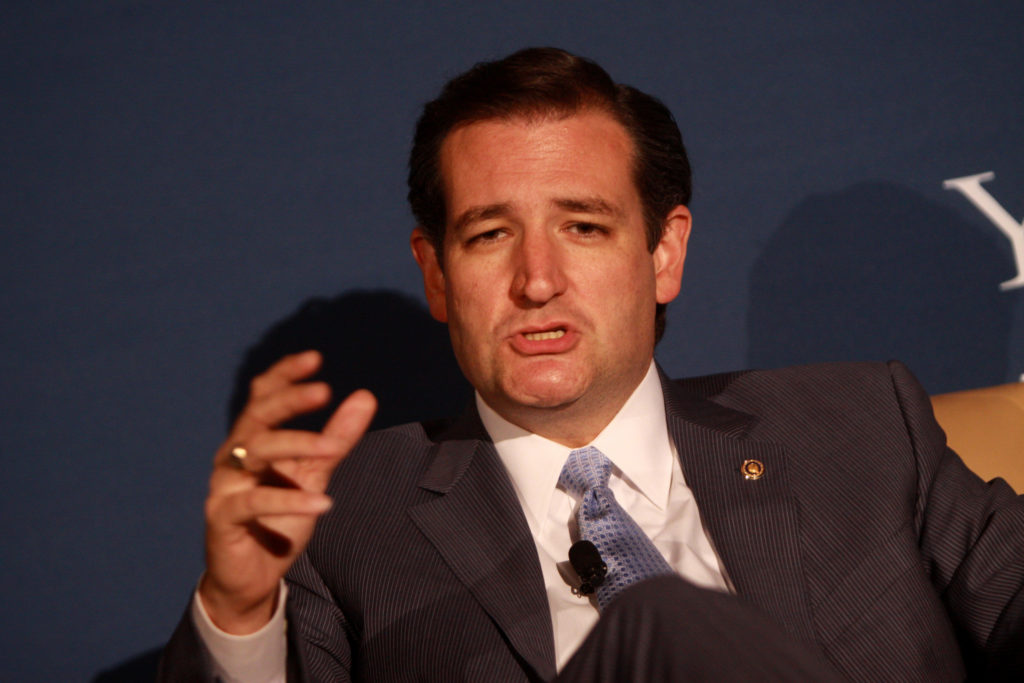To the young and moderate Republican, finding a candidate to represent you in this election might seem hopeless. The only moderate candidate left is John Kasich, who has virtually no chance of securing the 1,237 delegates necessary to win the nomination. The other choices we are left with are Donald Trump and Ted Cruz. Cruz is much farther to the right on social issues than most college-aged Republicans, and Trump comes off as a semi-racist buffoon during his rallies. In a different election year, I might be compelled to look across the aisle at other options, but this year, the Democrats have only supplied two. Personally, I don’t see myself voting for the establishment-backed, under-FBI-investigation Hillary Clinton, or Bernie Sanders, the socialist who sees climate change as a bigger threat to our country than the Islamic State group.
Republicans are splitting into different, unhappy and helpless groups: The “Never Trump” group that is trying desperately to stop his inevitable nomination and the “Anything but Hillary” crowd, which is unsuccessfully trying to deny the inevitability of her 2016 victory. Things aren’t completely set in stone – it is still possible that we will see a Bernie vs. Cruz election in November, but I wouldn’t bet on it. If you’re part of the #NeverTrump team, the most logical candidate running to support is Cruz. He is not the worst man in the world, as some may believe; he is a highly intelligent and principled conservative. Cruz could win the nomination outright if Kasich backed out and Cruz gained incredible momentum. More likely (but still improbable) is that Cruz and Kasich win enough delegates in the coming weeks to deny Trump the 1,237 he desperately seeks, forcing a contested convention. Then, Cruz or even Kasich could snag enough unbound delegates to steal the nomination. Still, the Cruz message does not resonate strongly with moderates, libertarians or independents, so would we really be moving in the right direction? Current RealClearPolitics.com polls have both Clinton and Sanders defeating Cruz in a general election.
Perhaps a Trump nomination would be good for young Republicans. It would surely cause chaos within the establishment and might even force a third-party candidate to run. It could be the death of the current GOP, and that could be exactly what we need. There is a blatant disconnect between Republican politicians and their young voters. According to data from Pew Research Center, 61 percent of Republicans under the age of 25 support gay marriage, yet not a single one of the 17 Republican candidates running this year supported marriage equality. Changes need to be made by the people in Washington representing Republicans. The party needs to restructure its message to reach young moderates, and independents.
If the Republican Party crumbles this election, it is not the end of conservative thinking in the US. Just look at Republican gains in Congress and in state legislatures during President Barack Obama’s eight years: More than 900 state legislature seats, 12 governorships, 69 House seats and 13 Senate seats. Anti-liberalism is more than just alive today in America; it is thriving. Young Republicans might have to grind through an ugly election in 2016, but the future is not hopeless. The Republican Party will have to reorient itself and find a way to connect with the younger generation again, and 2016 looks like the year we will hit the reset button.
– David Harbeck is a freshman journalism major.
Photo courtesy Gage Skidmore, Creative Commons.









